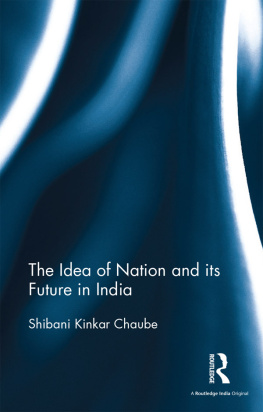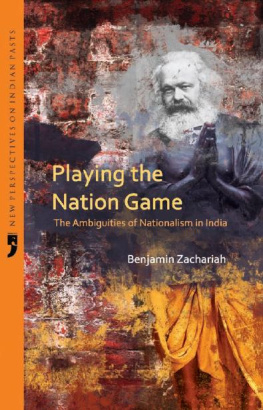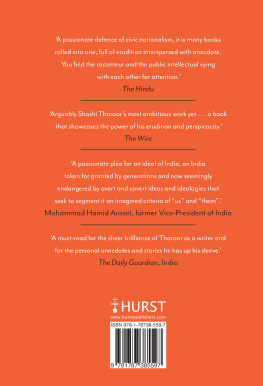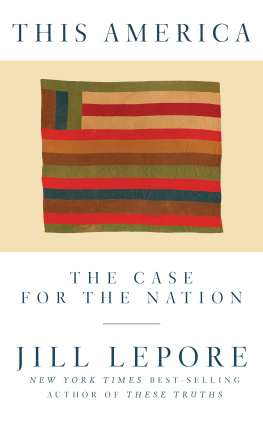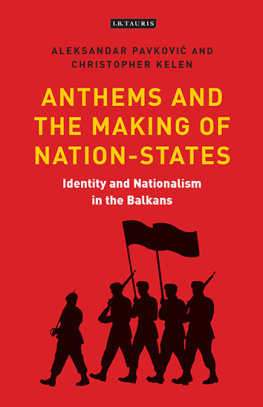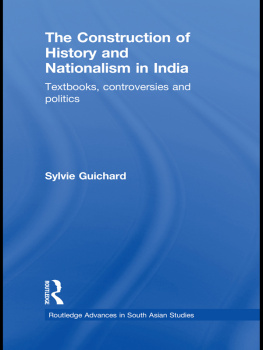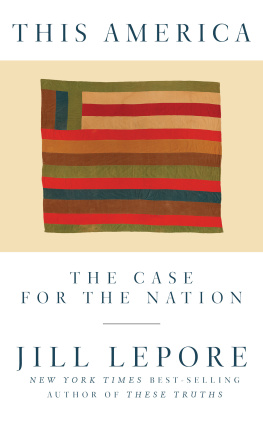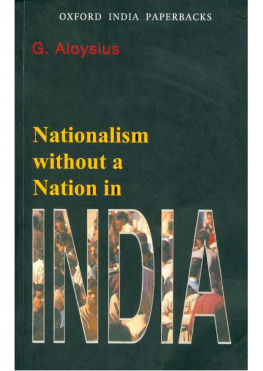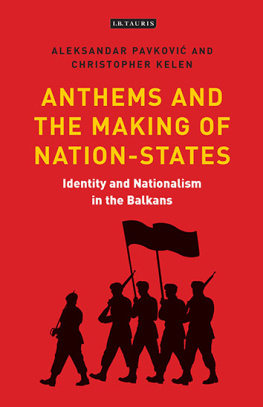The Idea of Nation and Its Future in India
This volume is a theoretico-empirical study of nations and nationalism on a global scale. It enquires if the idea of the nation, by its own logic, is feasible and whether India fulfils the requirement of nationhood with a reasonable prospect of survival. The monograph engages with the theories of nation and nationalism and examines if they are relevant and tenable in contemporary times. It looks at the way these ideas have acted out in the Indian nation while attempting to map its future trajectory. It also asks: how do the two fundamental challenges to the idea of nation ethnicity and class fare in the era of globalisation; and further, how does India, a new state in an ancient society, reconceptualise the paradigm of this debate?
The book will be of great interest to scholars and students of political science, political theory, history, political philosophy, and South Asian studies, as well as informed general readers.
Shibani Kinkar Chaube is former Professor of Indian Politics, University of Delhi and former Fellow in Parliamentary Studies, Lok Sabha, Parliament of India. Among his books are Constituent Assembly of India: Springboard of Revolution (1973); Hill Politics in Northeast India (1973); Electoral Politics in Northeast India (1985); Politics and Constitution in China (1986); Colonialism, Freedom Struggle and Nationalism in India (1996); Government and Opposition: Parliamentary Democracy in India (2006); The Making and the Working of the Indian Constitution (2009); and Politics of Nation Building in India (2012).
The Idea of Nation and Its Future in India
Shibani Kinkar Chaube
First published 2017
by Routledge
2 Park Square, Milton Park, Abingdon, Oxon OX14 4RN
and by Routledge
711 Third Avenue, New York, NY 10017
Routledge is an imprint of the Taylor & Francis Group, an informa business
2017 Shibani Kinkar Chaube
The right of Shibani Kinkar Chaube to be identified as author of this work has been asserted by him in accordance with sections 77 and 78 of the Copyright, Designs and Patents Act 1988.
All rights reserved. No part of this book may be reprinted or reproduced or utilised in any form or by any electronic, mechanical, or other means, now known or hereafter invented, including photocopying and recording, or in any information storage or retrieval system, without permission in writing from the publishers.
Trademark notice: Product or corporate names may be trademarks or registered trademarks, and are used only for identification and explanation without intent to infringe.
British Library Cataloguing in Publication Data
A catalogue record for this book is available from the British Library
Library of Congress Cataloging-in-Publication Data
A catalog record has been requested for this book
ISBN: 978-1-138-20967-1 (hbk)
ISBN: 978-1-315-41433-1 (ebk)
Typeset in Sabon
by Apex CoVantage, LLC
Dedicated to the victims of partition
Contents
One writes but one book in ones lifetime. Only the chapters are different. This book has been in the writing over seven decades.
I grew up in a rural town with a mixed HinduMuslim population about 40 kilometres inside the present Indian border with Bangladesh. The town did not see any communal riot. Within ten years of partition, however, it was completely depleted of the Muslim population that included some of my dear ones and flooded with refugees from East Pakistan who had carried their stories of unmatched sufferings. I could never overcome the pain and could never find the full answer to the question: Why did partition take place? Was it inevitable?
Until I took up research on the Constituent Assembly of India, I was under the impression that all Muslim politicians of British India, except Maulana Abul Kalam Azad and Khan Abdul Ghaffar Khan, were Muslim Leaguers and wanted partition of India. The proceedings of the Constituent Assembly showed something else. I had the opportunity to interview Colonel B. H. Zaidi, a former member of the Constituent Assembly. When I asked him why he had not gone with the Muslim League (ML) members of the Assembly, the old man was offended. I was not a Muslim Leaguer. I was an official representative of Rampur as its Dewan. Rampur was one of the princely states whose Muslim ruler joined India early. I was stunned. Comparisons were apt. Jammu and Kashmir, the Muslim-majority state whose Hindu ruler did not join India until he was forced by Pakistani invasion. Hyderabad, a Hindu-majority state whose Muslim ruler invited armed action of the Indian state. Travancore, whose Hindu ruler refused to read the oath of allegiance to the Indian Union, and Baroda, whose Hindu ruler dropped his diwan, Sir B. L. Mitter, presumably for showing undue zeal for integration of the princely states of India.
Many Muslims did not join the ML. Those who had voted for the party in 1946 had no inkling of partition. How would a Hindu in Pakistan and a Muslim in India tender their loyalties? How would the Indian nation shape up after the partition and independence? My doctoral work in the Constituent Assembly of India convinced me that the Congress party was as much responsible for partition as the ML. The role of quite a few Congress members, I confess, pained me and shamed me. I was shocked by the not-quite-hidden glee in the statements of them at the partition of British India. One of the front rankers called the grouping plan, which could postpone, if not foil, partition a parricides bag.
Several years later, when I presented my conviction in a seminar, a Pakistani diplomat politely asked whether I was not denying the Muslims the right to have their own state. He was correct. But the question lingered with me: did Pakistan serve the interests of the entire Muslim community of the subcontinent? The Bengali Muslim leader who moved the so-called Pakistan resolution (Fazlul Huq) kept company of the Muslim League for only three years. A leader of the Muslim League of much longer standing who was heading the Bengal government (Suhrawardy) opposed partition just on the eve of transfer of power. The Bengali Muslims who elected the only ML government in their province before independence left Pakistan within fifteen years of its birth.
Pakistani historians resent the depiction of ML politics in Indian history as communal and not Muslim nationalist. The idea of nation is full of paradoxes, not the least in India. It grew in Europe. For several decades before independence, Indians were told that they were not a nation. Her love for freedom was merely racial hatred and middle-class fancy. The thread ran through several writings of Cambridge historians after Indias independence. Today some of the premises of nationalism are being tested in its home, Europe.
In some ways, Indian nationalism does not fit in the global (European) pattern. A subcontinental civilization that could not be fragmented by successive empires and states over two thousand years suddenly found itself split into two, and later three, sovereign states, mutually suspicious of each other, each seeking to establish stable identities and trying to solve multiple ethnocultural conflicts within their bodies politic. None of these states territorially corresponds to any historical period in the past. None of them has gone under the steamroller of industrialism. They all adopted electoral democracy with varying success.

